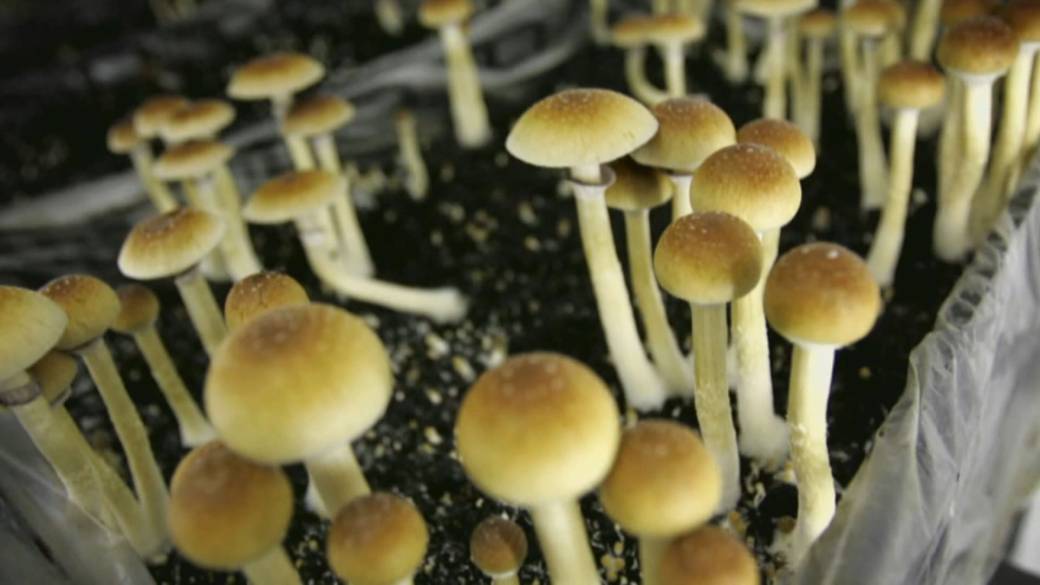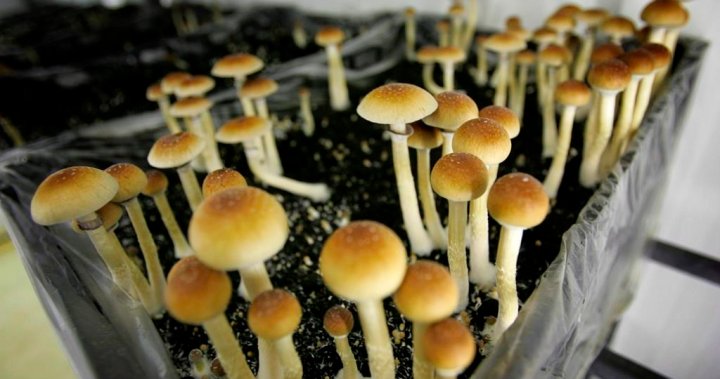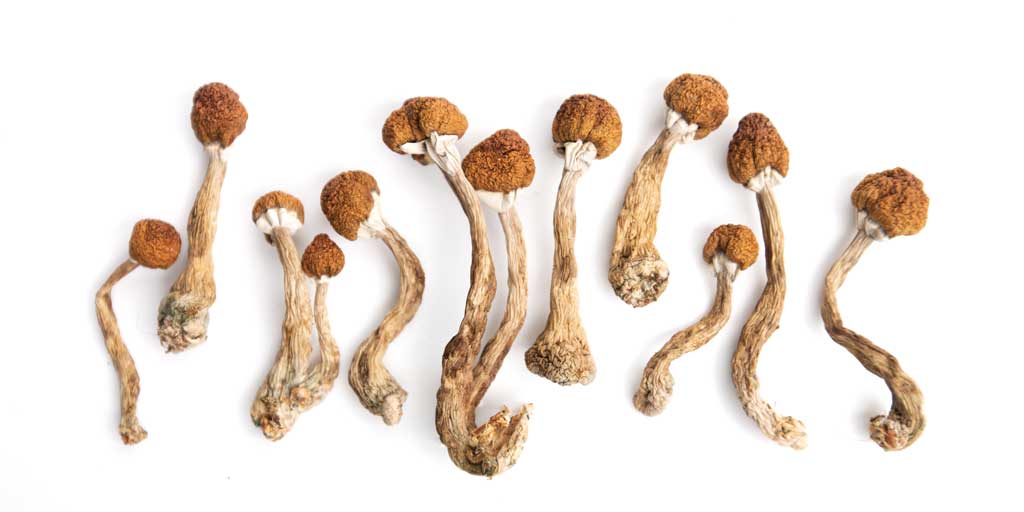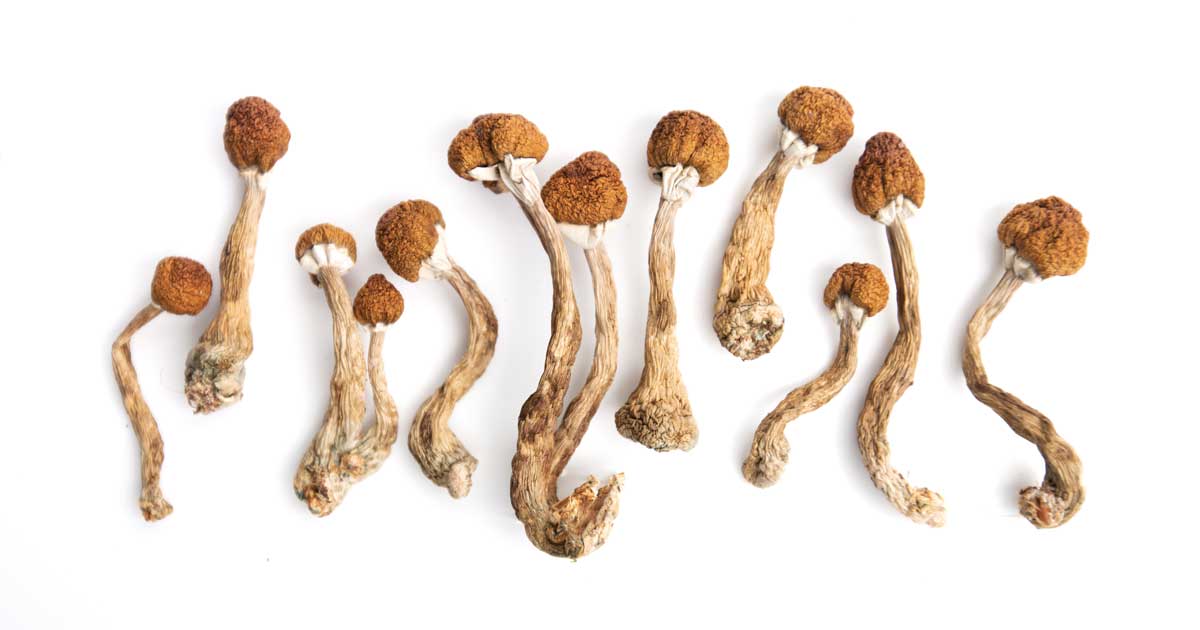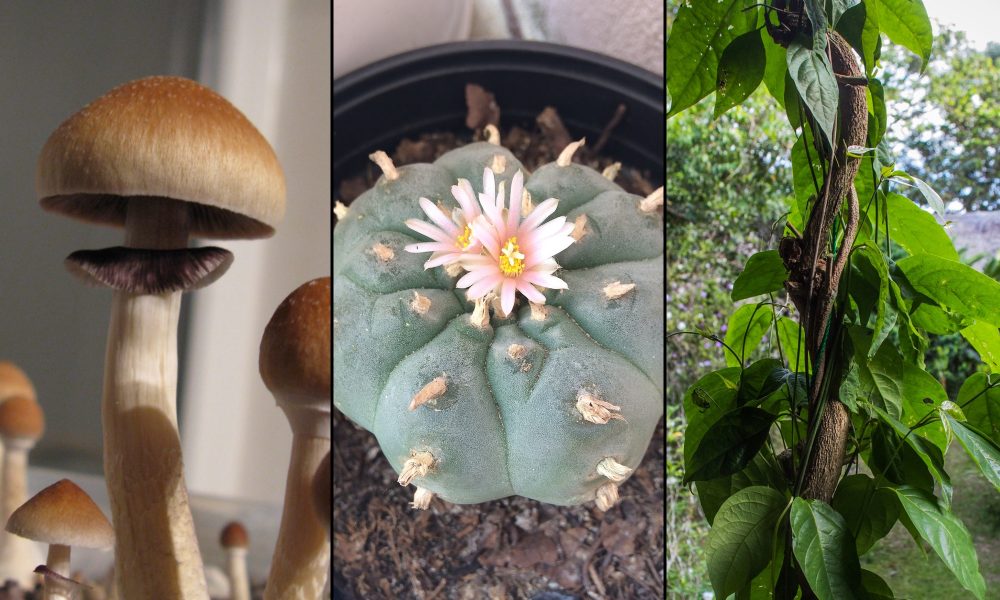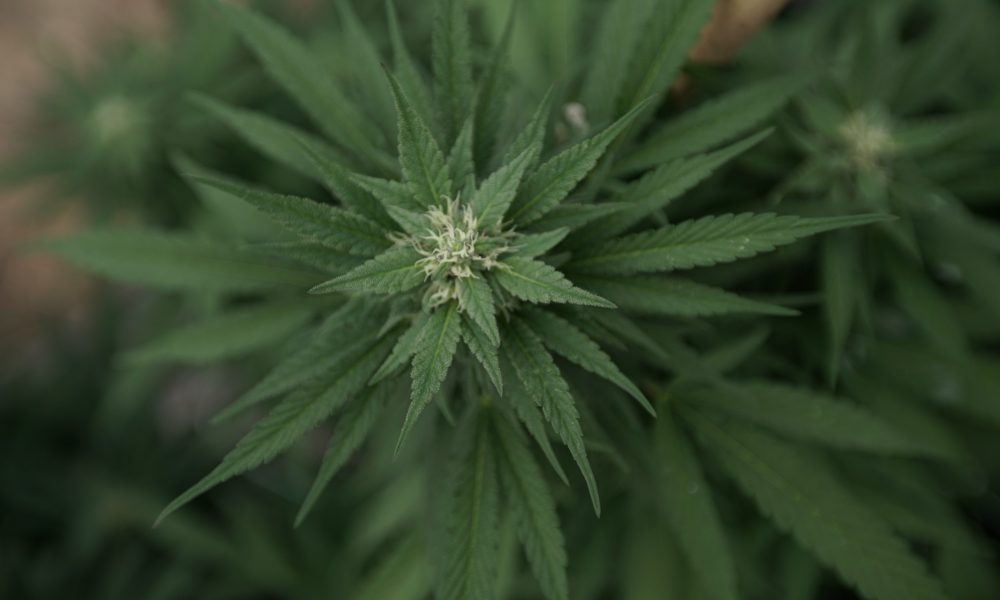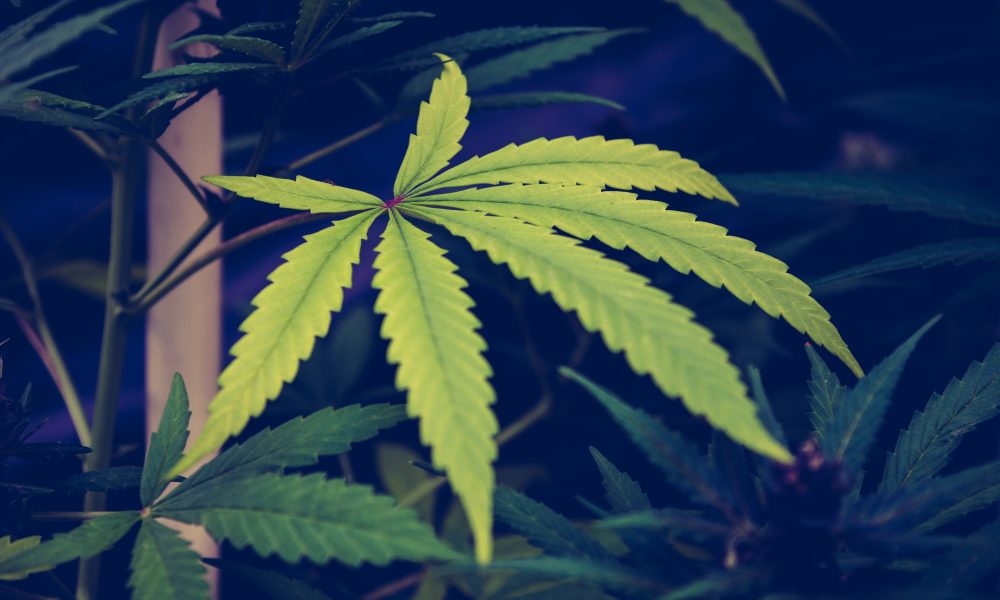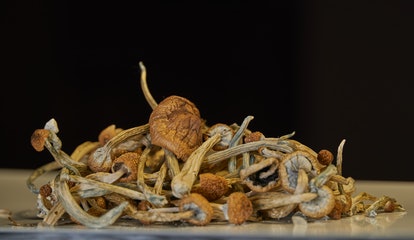Advocates scored a significant number of marijuana reform victories in state legislatures in 2021, but they’re hopeful they can get even more accomplished in the new year.
In states across the country, activists are already in the process of qualifying cannabis legalization and other drug policy reform measures for November 2022 ballots as lawmakers separately work to advance reform bills.
“I am optimistic 2022 will break the record for the most cannabis legalization laws enacted in a single year—a record that was set just last year,” Karen O’Keefe, director of state policies for the Marijuana Policy Project, told Marijuana Moment. “Several states also appear poised to enact compassionate medical cannabis laws.”
And the reform movement is poised to make gains beyond just cannabis this year, with several proposals to legalize or decriminalize psychedelics and other drugs also gaining momentum.
Here’s a rundown of which states are most likely to enact broad cannabis or psychedelics reform in 2022:
Arkansas
There are three campaigns working to give voters a say in whether Arkansas should legalize marijuana in 2022.
The most recent one to throw their hat in the ring was Arkansans for Marijuana Reform, which filed their reform initiative with the state in November.
Also last year, a former Arkansas lawmaker announced a campaign that also intends to put cannabis legalization on the state’s 2022 ballot. Eddie Armstrong, a Democrat who previously served as minority leader in the state House of Representatives before leaving office in 2019, is chairing the newly formed advocacy group Responsible Growth Arkansas.
A separate group of activists with Arkansas True Grass is already in the signature gathering process for a 2022 ballot initiative that would create a system of regulated sales for adults 21 and older, allowing them to purchase up to four ounces of cannabis and grow up to 12 plants for personal use.
Both True Grass and Arkansans for Marijuana Reform attempted to place marijuana legalization initiatives on the 2020 ballot, but both campaigns were derailed by the coronavirus pandemic and failed to collect enough signatures by the deadline.
California
There are two potential routes to legalizing psychedelics possession in California: a legislative approach being spearheaded by Sen. Scott Wiener (D) and a ballot campaign to place the issue of psilocybin legalization before voters in November.
The senator put a pause on that proposal last year after it cleared the Senate and started to advance through the Assembly, and he’s used the extra time to build up support for the reform and ensure that it’s something that could pass the full legislature.
Wiener recently told Marijuana Moment that he feels there’s a “50/50” chance that his psychedelics reform bill will advance this session.
Meanwhile, California activists are separately pursuing psychedelics reform at the ballot, with Decriminalize California collecting signatures for a 2022 initiative to legalize psilocybin mushrooms in the state.
Colorado
Colorado voters could have the chance next year to vote on legalizing possession and personal cultivation of psychedelics, and creating a system of licensed businesses to produce psilocybin, DMT, ibogaine and mescaline for supervised use at “healing centers.”
A national advocacy group recently filed two separate psychedelics reform initiatives for Colorado’s 2022 ballot, both of which are titled the Natural Medicine Healing Act.
The first would legalize the possession, cultivation and an array of entheogenic substances, as well as establish a regulatory model for psychedelics therapy. The other is a similar, but somewhat more dialed-back proposal that would initially legalize psilocybin and psilocin alone for personal adult use while also allowing for their sale and administration in a therapeutic setting.
This filing comes more than two years after Denver became the first city in the U.S. to decriminalize psilocybin mushrooms. Various activists, including those involved in the 2019 campaign, have signaled interest in building upon the reform.
Delaware
A legislative effort to legalize marijuana for adult use in Delaware died for the 2021 session following disagreements among lawmakers over social equity funding. But that effort could be revived in the new year, with national advocates listing the state as a top target to enact legalization next.
Rep. Edward Osienski (D) said he’s spent the past few months revising his proposal to build more support and secure a vote, and he recently filed a new version of the bill.
Gov. John Carney (D) is another obstacle, however, calling legalization a “bad idea” last year as the reform push was underway. He’s also declined to say what he would do if legislators put a marijuana commerce bill on his desk.
Hawaii
A Hawaii bill to legalize recreational marijuana that cleared the Senate last year is still alive for the 2022 session, and it’s possible that the legislature will move to take it up again.
House Judiciary and Hawaiian Affairs Committee Chairman Mark Nakashima (D) is largely responsible for the bill not being enacted last year, as he said he thinks the state should focus on improving its existing medical cannabis system before advancing adult-use legalization and declined to take action on the Senate-approved proposal. Gov. David Ige (D), who has also opposed certain cannabis reforms in the past, is another potential obstacle to passage.
But, because legalization has already cleared one full chamber of the legislature, the state is one to watch in 2022.
Idaho
In Idaho, activists with one campaign are moving forward with plans to put medical cannabis legalization on the state’s 2022 ballot, while another set of advocates have decided to suspend a campaign to legalize possession due to complications resulting from the coronavirus pandemic.
While the Personal Adult Marijuana Decriminalization Act (PAMDA) was cleared by Idaho officials for signature gathering in July, campaign spokesperson Russ Belville of Legalize the Idaho Way, Inc. told Marijuana Moment that “navigating a ballot initiative through a second wave of COVID has been trying, especially [for] a new type of marijuana initiative that simply depenalizes import of legal out-of-state purchases.”
“Therefore, in the interest of public safety, we’ve decided to suspend our active ballot initiative campaign for PAMDA,” he said. “However, we are continuing the concept of PAMDA in negotiations with Idaho legislators and political leaders with the goal of a bill for the next legislative session. Should our legislative efforts run aground and this pandemic eventually subside, we’ll resume a PAMDA ballot initiative campaign for 2024.”
A separate campaign, Kind Idaho, remains in the process of collecting signatures for a medical marijuana legalization initiative. A representative recently told Marijuana Moment that they have gathered about 10 percent of the required signatures to make the ballot and face an April 29 deadline to collect about 54,000 more signatures.
If things don’t work out for the campaign in 2022, activists will be looking ahead to future election cycles if the November election “doesn’t present us with the legislators necessary to move it forward through the legislative process,” Kind Idaho’s Joe Evans said.
“Mind you, we aren’t giving up the ghost on getting the initiative on the ballot this year,” he said. “It can still be done with the right combination of funding and volunteer support.”
Kansas
A medical cannabis bill that passed the House last year is still alive and poised for action in the Senate in 2022.
Kansas Democratic leaders want to go further, however, and recently announced new proposals to let voters decide on legalizing medical and adult-use marijuana in the state.
“It’s time to give voters their opportunity to have their say and let the legislature know how they feel,” House Minority Leader Tom Sawyer (D) said this month. If approved in the legislature and then by voters in November, the laws would take effect in July 2023.
Gov. Laura Kelly (D), for her part, supports medical cannabis. She previously pushed a separate proposal that would legalize medical cannabis and use the resulting revenue to support Medicaid expansion.
Kentucky
A Republican-led bill to legalize medical marijuana in Kentucky landed in the state legislature this month. The measure is an update to lead sponsor Rep. Jason Nemes’s (R) past legalization efforts and includes a number of conservative-minded adjustments aimed at wining broad support among lawmakers, including leaders of his own party who control the legislative agenda.
Nemes filed a medical legalization bill in 2020 that soundly passed the House but later died in the Senate without a vote amid the early part of the coronavirus pandemic. He reintroduced the legislation for the 2021 session, but it did not advance. In recent months, Nemes has working to build support for a new, scaled-back version of the bill for 2022 and in October said he was confident it could pass if only legislative leaders have the “courage” to allow a vote on it.
Gov. Andy Beshear (D) supports medical cannabis, and Democratic leaders in the legislature said the issue would be a top priority for this year.
Maryland
Late last month, a top Maryland lawmaker pre-filed a bill to put marijuana legalization on the state’s 2022 ballot.
The legislation, which seeks to put a constitutional amendment on the ballot, has been designated House Bill 1, signaling that it will be prioritized.
House Speaker Adrienne Jones (D) has been working to get the legislature in a good position to advance the reform quickly, announcing the formation of a cannabis workgroup last summer and stating that lawmakers “will pass legislation early” in 2022 to refer the question of legalization to voters.
Senate President Bill Ferguson (D), meanwhile, said in July that the reform is “beyond past due” in the state— but he seemed reluctant to embrace a referendum process and instead wants to pass a bill to end cannabis prohibition sooner than next November.
Michigan
There are efforts underway in Michigan to get statewide psychedelics and marijuana reform enacted this year, both legislatively and through the ballot.
Several Michigan cities have passed resolutions to decriminalize a wide range of psychedelics in the past couple years—most recently in Grand Rapids and Detroit. Building on those reforms, a pair of state senators introduced a bill in September to legalize the possession, cultivation and delivery of various plant- and fungi-derived psychedelics like psilocybin and mescaline.
The legislation, sponsored by Sen. Jeff Irwin (D), would amend state statute to exempt people from criminal penalties for such activities so long as they are not “receiving money or other valuable consideration for the entheogenic plant or fungus.”
As such, commercial production and sales would not be legalized under the measure. The legislation does clarify, however, that people can charge a “reasonable fee for counseling, spiritual guidance, or a related service that is provided in conjunction with the use of an entheogenic plant or fungus under the guidance and supervision of an individual providing the service.”
But the most likely route to broad reform might be through the ballot, with activists are planning to introduce a separate statewide psychedelics reform initiative that they hope to place before voters this November.
Minnesota
The year 2021 saw a bill to legalize marijuana in Minnesota move through a dozen House committees and then get approval by the full chamber, but it subsequently stalled in the GOP-controlled Senate. Lawmakers are ready to take up the reform fight again in 2022.
While the House-passed measure is still alive for 2022 in the two-year session, it’s unclear if new Senate leadership will be more amenable to advancing a policy change than prior leaders were.
Gov. Tim Walz (D), who signed legislation in May to allow patients to access smokable cannabis products, previously called on lawmakers to pursue adult-use legalization as a means to boost the economy and promote racial justice. In 2019 he directed state agencies to prepare to implement reform in anticipation of legalization eventually passing.
Mississippi
Mississippi lawmakers are moving ahead with a proposal to legalize medical cannabis in the state, though they’ve faced some resistance about certain provisions by Gov. Tate Reeves (R).
The main objection from the governor concerns the daily purchase limits for patients, which he says are too high. He’s signaled that he would veto the bill if the purchase limit isn’t reduced, but a key state senator suggested last month that they would have the votes to override that action if it’s taken.
But Sen. Brice Wiggins (R), chairman of the Judiciary Committee Division A who is also running for a seat in Congress, says the people of Mississippi spoke loud and clear when they voted to approve a medical cannabis legalization initiative last year, and lawmakers have a duty to deliver on the reform after the state Supreme Court invalidated it for procedural reasons.
Lawmakers have already made several concessions to the governor as they’ve continued negotiations on legislation to replace the voter-approved ballot measure, and advocates hoped everything would be resolved in time for Reeves to convene a special session to pass it this year, as he suggested he’d do. But as the goal post continued to be pushed back, it became clear that legislators would need to tackle the reform in the 2022 session.
House and Senate leaders announced in September that they had come to an agreement on the reform, yet the governor came back with several objections, forcing legislators to go back and make some compromises. Even after they did that, Reeves held firm on what leadership says are “unreasonable demands.”
The Senate has already approved the new bill, just days into the new session, and now it heads to the House.
Missouri
There are currently two separate campaigns working to get legalization initiatives on the Missouri’s 2022 ballot, in addition to legislative proposals to enact the reform.
Legal Missouri 2022 kicked off its campaign last month, with plans to deploy hundreds of signature gatherers at major cities throughout the state.
“We are pushing full steam ahead with both paid and volunteer signature collection efforts and look forward to Missourians voting on adult use legalization this fall,” campaign manager John Payne told Marijuana Moment. He added they’ve hired a signature gathering firm that they worked
Payne previously worked with the group New Approach Missouri to successfully get a medical cannabis initiative passed by voters in 2018.
A separate campaign, Fair Access Missouri, is separately exploring multiple citizen initiatives with the hopes of getting at least one on the ballot this year. Three of the four would create a system of legalized cannabis sales for adults 21 and older, while another would simply amend the state’s existing medical marijuana program.
Meanwhile, Rep. Shamed Dogan (R) recently filed a joint resolution to place a constitutional amendment on marijuana legalization on the 2022 ballot. He introduced a similar proposal last year, but it did not advance.
There are some advocates who want to see the legislature take the lead on establishing a regulated marijuana market, but others remain skeptical that will actually happen in the state’s GOP-controlled House and Senate.
Nebraska
Nebraska activists are fed up with the GOP-controlled legislature blocking efforts to enact marijuana reform, and so they’re making another push to put medical cannabis legalization on the 2022 ballot.
Advocates unveiled the language of a pair of initiatives that, together, would protect qualified patients from legal consequences for cannabis and regulate businesses that produce, distribute and sell marijuana products to those patients.
Each of the ballot measures will need 87,000 signatures of support from registered voters by July to qualify for the 2022 ballot.
“We are confident we will get the signatures to qualify for the ballot because we have successfully done this before, during a pandemic,” Sen. Anna Wishart (D) told Marijuana Moment, referring to a 2020 campaign when Nebraskans for Medical Marijuana qualified its prior cannabis measure for the ballot—only to be thwarted by the state Supreme Court.
“We collected close to 200,000 signatures in 2020, well over the necessary 122,000, only to be kicked off the ballot by the Supreme Court in a 5-2 decision,” she said. “We learned from the Supreme Court challenge and brought language this time that we believe will withstand any opposition.”
Wishart said that polling conducted two years ago showed that more than 70 percent of voters across political lines back the policy change.
“I know how strongly this is supported because I drove across the state to collect signatures in 2020 to some of the most rural areas of the country and I was met with support,” the senator said. “I collected signatures of cowboys and cowgirls, for example, at a cattle sale.”
“What this will mean for the state is that Nebraskans will be treated like patients and no longer like criminals,” she said. “This is an issue about medical freedom and human dignity and it is long overdue that we join the rest of the country in legalizing medical cannabis.”
New Hampshire
New Hampshire’s House of Representatives kicked off the 2022 session by approving a bill to legalize the possession and cultivation of marijuana by adults 21 and older. It now heads to the Senate, where cannabis reforms have had a tougher time advancing in the past.
But there are other pending proposals from lawmakers to enact broad legalization, including three to place constitutional amendments on the ballot for voters to decide on the reform in November.
It would take a supermajority 60 percent vote in both chambers to advance any of the proposed constitutional amendments. But while that may be a tall task in the GOP-controlled legislature, if they’re successful, it would enable lawmakers to avoid a likely veto on statutory reform legislation from anti-legalization Gov. Chris Sununu (R).
Should legislators approve placing a constitutional amendment to legalize cannabis on the ballot, 67 percent of voters would then have to vote in favor for it to be enacted. Recent polling indicates that residents are ready for the reform, with three in four New Hampshirites favoring legalization.
North Carolina
A proposal to legalize medical cannabis in North Carolina advanced through three Senate committees last year, and advocates are optimistic that the reform could be taken up again in the new year.
Under the proposal, patients would be allowed to access cannabis if they have a “debilitating medical condition” such as cancer, epilepsy, HIV/AIDS, Parkinson’s disease, multiple sclerosis and post-traumatic stress disorder.
Patients could possess up to one and a half ounces of marijuana, but home cultivation would not be permitted.
North Carolina’s House majority whip said last month that he’s in favor of the reform but has not done a vote count to see how much support it has in his chamber.
A majority of North Carolina adults support legalizing marijuana for recreational use—and three in four say it should be legal for medical purposes—according to a poll released last year.
North Dakota
Marijuana legalization could come to North Dakota either through an act of the legislature or the ballot this year.
The state House approved a reform bill to put legalization on the ballot in 2022 last year, but the full Senate rejected it.
Meanwhile, advocates with two separate campaigns are pushing for separate legalization referendums.
David Owen, chairman of Legalize ND, told Marijuana Moment that the group is “still working with stakeholders and partners to determine the best pathway forward but are confident that news will come soon.”
“We are determined to legalize recreational marijuana in North Dakota but are still exploring options for what the best path is especially given the SD Supreme Court decision,” he said, referring to a state Supreme Court ruling late last year in neighboring South Dakota that determined a voter-approved marijuana legalization initiative was invalid on procedural grounds.
Another group called the North Dakota Cannabis Caucus has separately working to put marijuana reform on the ballot.
There’s a chance the group could get enough signatures under the state’s timeline to put the reform on the June primary ballot, but Dustin Peyer, the chief petitioner, told Marijuana Moment it’s “not likely.” Instead, the probable plan is to turn in signatures by July to get on the November ballot.
Peyer said the group is “currently looking to build a new petition that will take less signatures and change the medical program directly.”
“Ultimately the constitutional right to grow cannabis on private property is our goal and this petition will continue forward,” he said. “We have a growing base of local business support that we are very grateful for. However, the current monopolized market created by a super majority of prohibitionist Republican and Democratic lawmakers alike is leading to many issues in the program.”
Ohio
Activists and lawmakers in Ohio are hoping to get reform enacted in 2022.
Last month, Ohio advocates submitted to the state what they said were enough signatures for an initiative to force lawmakers to take up the issue of legalization. But the secretary of state’s office said this month that there weren’t enough valid signatures, so the campaign collected more and turned in the new submissions this week.
The measure that legislators would be required to consider would legalize possession of up to 2.5 ounces of cannabis for adults 21 and older, and they could also have up to 15 grams of marijuana concentrates. Individuals could grow up to six plants for personal use, with a maximum 12 plants per household.
Separately, a legalization bill that was the first of its kind to be introduced in the Ohio legislature last year would legalize the possession, sale and cultivation of cannabis by adults. It’s being championed by Reps. Casey Weinstein (D) and Terrence Upchurch (D).
A pair of Ohio Republican lawmakers similarly filed a bill to legalize marijuana in the state in December. Reps. Jamie Callender (R) and Ron Ferguson (R) first announced their plan to push the legislative reform proposal in October and circulated a co-sponsorship memo to build support for the measure.
There are also additional local reform efforts underway in Ohio for 2022.
After voters in seven cities approved ballot measures to decriminalize marijuana possession during last November’s election—which builds on a slew of previous local reforms in the state—campaigns are now looking to enact decriminalization in Marietta, Rushville, Rutland, Shawnee, McArthur and Laurelville.
Ohio marijuana activists already successfully proved that they turned in enough valid signatures to put a local decriminalization initiative before Kent voters after having missed the 2021 ballot due to a verification error on the part of county officials.
“It is the local [decriminalization initiatives] that have pushed the state to act,” Don Keeney of NORML Appalachia of Ohio told Marijuana Moment. “We are looking forward to adding as many local municipalities as time permits. We are gearing up for another good run at it. Solid change starts at the local grassroots level.”
Oklahoma
There are currently two campaigns working to put marijuana legalization on the state’s 2022 ballot, as well as a separate initiative to rework Oklahoma’s existing medical cannabis program.
The latest campaign is being supported by the national New Approach PAC, which has been behind a number of successful state-level reform initiatives. A separate group of local activists, Oklahomans for Responsible Cannabis Action, also filed initiatives to legalize recreational marijuana and remodel the state’s medical cannabis program in October.
Oklahoma activists had previously attempted to qualify a legalization measure for the 2020 ballot. They filed a petition to legalize cannabis for adult use in December 2019, but signature gathering fell short due in part to procedural delays and the coronavirus pandemic.
Rhode Island
A deal on a marijuana legalization bill in Rhode Island appears imminent, with key lawmakers recently saying the legislation should be introduced in the coming days following months of negotiations between the House, Senate and governor’s office.
The Senate already approved legalization legislation last year.
Many issues have been resolved over the course of negotiations, but the question of who should be in charge of regulating the program—an existing agency or a newly created body—has been a sticking point.
“The House and Senate intend to soon have a draft of legislation ready, which will serve as a framework to begin a robust public hearing process,” House Speaker Joseph Sherkarchi (D) said. “We may not be the first state to legalize marijuana, but our goal is to do it in a way that is best for all of Rhode Islanders.”
South Carolina
South Carolina lawmakers are positioned to advance a medical marijuana legalization bill that’s being championed by Sen. Tom Davis (R).
The senator told WMBF News this month that he’s “optimistic about this bill being approved by both chambers of the legislature and sent to Governor McMaster before we adjourn in May.”
“I’ve done a pretty good canvassing of my colleagues in the state Senate,” he said. “I’m confident that I have a majority of senators in favor of this bill.”
Davis previously said that he’s received assurances from a top Senate leader that his measure will be taken up as the first order of business at the beginning of this year.
The senator said that he “had hoped it would be debated and voted on before we adjourned in May” after clearing the Senate Medical Affairs Committee in March. But that didn’t pan out after another lawmaker placed a hold on the legislation.
The senator’s legislation as filed last year would allow patients with qualifying conditions to possess and purchase up to two ounces of cannabis every two weeks.
South Dakota
In a setback for activists late last year, the South Dakota Supreme Court ruled that a voter-approved 2020 marijuana legalization initiative was invalid on procedural grounds. But advocates are now pursuing a two-track plan to enact the reform this year.
In the legislature, a cannabis reform bill has been formally recommended by a leadership panel for the upcoming session. Activists with South Dakotans for Better Marijuana Laws (SDBML) will also continue collecting signatures for a 2022 ballot initiative—though they hope to work with lawmakers to advance reform legislatively ahead of this year’s election.
A Marijuana Interim Study Committee made the formal recommendation for the legislature to take up legalization following a series of hearings. The recommendation was agreed to late last year by the legislature’s Executive Board, which is led by the House speaker and Senate president pro tempore.
Voters also approved a separate statutory medical cannabis ballot measure in 2020, and that wasn’t challenged in the courts and took effect in July.
Washington, D.C.
Lawmakers and advocates in Washington, D.C. are ready and eager to proceed with legalizing marijuana sales as soon as a congressional appropriations rider is lifted.
For years, the District has been prohibited from using its local tax dollars to enact the reform despite voters approving an initiative to legalize possession, personal cultivation and gifting in 2014. The U.S. House of Representatives approved a spending package that removes that rider, despite the Biden administration proposing to keep it in its own budget request, and now advocates are waiting to see whether the policy is ultimately stripped in the final bill for fiscal year 2022.
Local lawmakers held a joint hearing in November on a pair of bills to authorize the legal sale of recreational marijuana and significantly expand the existing medical cannabis program in the nation’s capital.
One bill sponsored by Chairman Phil Mendelson (D) would “require a regulatory scheme to license the cultivation, production, and retail sale of cannabis in the District.”
Rep. Eleanor Holmes Norton (D-DC), who represents the District in Congress, said in November that she is “closer than ever” to removing the blockade on cannabis commerce in her district.
Meanwhile, Mayor Muriel Bowser (D) said in April that local officials are prepared to move forward with implementing a legal system of recreational marijuana sales in the nation’s capital just as soon as they can get over the final “hurdle” of congressional interference.
Washington State
Activists are preparing to introduce a ballot initiative to broadly decriminalize drugs in 2022, similar to what neighboring Oregon voters passed in 2020.
Christina Blocker of Commit to Change WA told Marijuana Moment that the campaign is “energized by the support that we have received across the state of Washington,” adding that “2022 is the year where we will have the opportunity to end the War on Drugs and its impacts on our families, our neighbors, and our communities.”
The group was formerly known as Treatment First WA and, in 2020, attempted to qualify a decriminalization measure for that year’s state ballot. That initiative would have made unlawful possession of any drug a civil infraction, referred people found with drugs to a services assessment and funded a massive expansion of outreach and recovery programs.
When the pandemic interrupted the signature gathering effort for that measure, organizers shifted their focus to the legislature. After months of delay, a bill that was largely based on the earlier initiative was introduced but eventually died after clearing one House committee.
State lawmakers did reduce Washington’s criminal penalty for drug possession from a felony to a misdemeanor last year, but that was in response to the state Supreme Court invalidating the state’s decades-old felony law, which temporarily left no valid law on the books against simple possession.
While more progressive Democrats urged against reinstating criminal penalties of ay kind, the legislature ultimately adopted the misdemeanor charge along with plans to create a statewide suite of treatment and recovery services. The law, widely seen by advocates as a half-step toward meaningful reform, took effect in May with Gov. Jay Inslee’s (D) signature.
Separately, a pair of state lawmakers recently introduced legislation that would legalize what the bill calls “supported psilocybin experiences” by adults 21 and older.
Wyoming
Wyoming activists recently said that they’ve made solid progress in collecting signatures for a pair of ballot initiatives to decriminalize marijuana possession and legalize medical cannabis, but they didn’t get enough to make the 2022 ballot deadline and will be aiming for 2024 while simultaneously pushing the legislature to advance reform even sooner.
Weather conditions, the ongoing pandemic and late approval for their petitions by state officials made the prospect of putting legalization and decriminalization before voters this year especially challenging.
Now, in addition to continuing to collect signatures for a 2024 initiative, activists will be pushing lawmakers to file new bills that contain the language of the ballot measures.
A bill to legalize and regulate cannabis for adult use in Wyoming advanced out of a House committee in March, but it did not move further in the legislature by the end of the session.
Activists say the stage is set for an active year for drug policy reform.
While it’s unclear how many of these bills and ballot proposals will ultimately advance and become enacted, there’s a sense of optimism that the reform movement will expand rapidly in 2022. And advocates are pleased to see the range of policy reforms that are being pursued.
“As we look ahead to 2022, we have many opportunities to expand America’s access to medical cannabis and regulated cannabis markets,” Jax James, who was recently hired as NORML’s state policy director, told Marijuana Moment. “NORML is tracking hundreds of bills that have already been filed as well as ballot initiatives across the country. We look forward to another year of important reforms passing in many states.”
“No matter what state you reside in, registering to vote, engaging in the primary election, the political convention cycle and the general election are integral to further advancement,” she said.
Polls Funded By Marijuana Prohibitionist Group Show Big Support For Legalization Policies It Lobbies Against
